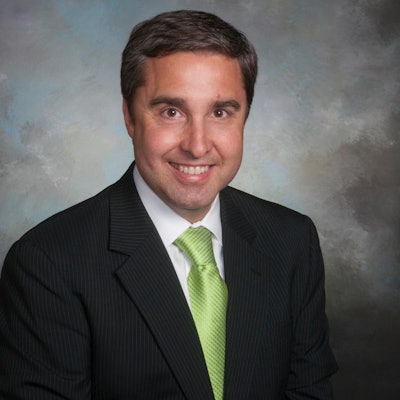Due to early travel restrictions imposed by the United States Citizenship and Immigration Services (USCIS) and the nature of the novel coronavirus itself, the COVID-19 pandemic has changed how study abroad and student exchange programs in higher ed operate.
At the University of Mary Washington (UMW) in Virginia, Dr. Jose A. Sainz, director of the Center for International Education, said it was clear early on that “travel was going to be impossible” this past summer. What followed was canceling all international travel for fall 2020 and any faculty-led programs and conferences — as well as deferring students still interested in international programs for the spring of 2021.
 Dr. Jose A. Sainz
Dr. Jose A. SainzThis is the case for many universities, including the University of Mississippi (UM).
“COVID-19 has impacted study abroad in that fewer students are studying abroad due to entry restrictions, lack of visas, limited flights, and general unease about international travel,” said Blair McElroy, director of study abroad at UM, via e-mail.
And while deferred programs at UMW are set to run between May and July of next summer, “the caveat to those programs is that [the university] can cancel those programs any day,” Sainz said. However, if airlines, travel, and quarantine measures are not “deal breakers,” then students may still have the opportunity to go.
Original international program plans for spring 2021, such as extracurriculars, may be altered given safety concerns. Some museums abroad may not allow students to go as a group and congregate, Sainz explained.
“So, you have to kind of rethink — in terms of activities — what you want to incorporate in your program,” and then, give students guidelines for their independently-led assignment, he said.
Universities will also have to restructure their classroom format virtually as well.
At UM, a summer study abroad program in Taiwan successfully transitioned to a virtual study abroad program with the National Cheng Chung University in Chiayi for 17 students to learn Chinese, McElroy said.
“Like any student deciding to enroll in synchronous or asynchronous courses, international students take into account the time zone from which they log in,” she added. “An asynchronous course would allow much more flexibility and be on the student’s schedule.”
The only difference “is that these students are in a different time zone,” Sainz said. “God knows what time they have to get up or if they’re actually taking the classes live or waiting for the recording to be posted.”
NAFSA: Association of International Educators highlighted some challenges regarding the future of study abroad programs in a recent webinar titled, “2020 Financial Aid: Review of a Year in Upheaval.”
One factor is the undetermined date if a potential second round of emergency funding via The Coronavirus Aid, Relief, and Economic Security (CARES) Act, which may affect how institutions proceed — or not — with their international programs.
Katherine Meyer, chair of the NAFSA Federal Financial Aid Subcommittee, said that some university partnership contracts do not include virtual program options for students. If that is the case, some institutions may not approve students’ visas — as was the case last summer — and then they cannot study physically in the U.S. until further notice.
There are “a lot of sticky pockets,” she added.
 Photo credit: Kyle Glenn
Photo credit: Kyle GlennAs for programs that are shortened in duration to help curb the spread of COVID-19, universities and students have to keep in mind the number of hours/credits they are able to receive, explained Meyer. Understanding how such hours/credits lead to graduation and affect eligibility to access full financial aid packages is key.
NAFSA also questioned if students are able to use financial aid to support themselves amid quarantine costs — depending on state, country and individual university guidelines. Regardless, NAFSA advised educators to speak to their financial aid offices (in conjunction with international partner universities) to clarify any doubts they may have about study abroad finances.
“A positive outcome of the COVID-19 crisis is that we have embraced and expanded virtual study abroad opportunities, which give students the opportunity to have international experiences even if they aren’t able to travel,” McElroy said.
There is still room for improvement, however.
If study abroad programs can develop a standard informed consent form that can be applied within specific regions to protect students and study aboard providers, that would be helpful, explained Dr. Jessica Calhoun, assistant dean of admissions and alumni affairs for the Institute for American Universities at The American College of the Mediterranean.
“Liability is something that universities and study abroad providers are concerned about, and if a shared set of standards were developed, institutions may be more comfortable in sending their students abroad,” she said.


















